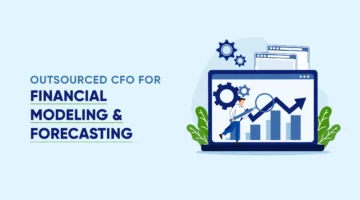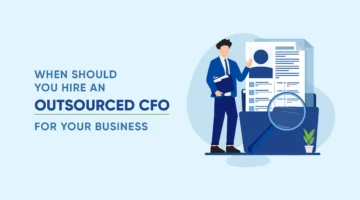How to Become a CFO
A common question for many pursuing a career in finance is, “How to become a CFO?” A CFO is an important member of any executive team. Since they are responsible for setting and monitoring the financial strategy of a company, they must have extensive financial experience. Everything from education to work history to skillset is an important quality of a successful CFO.
It Starts with an Education
Most current CFOs hold bachelor’s degrees, master’s degrees and multiple certifications. Pursuing this education path is a great way to gain knowledge for being a CFO. These educational qualifications will also set you apart as a strong CFO candidate.
Undergraduate Education
Many current CFOs hold bachelor’s degrees in business administration, accounting, economics and finance. These degrees open the door to a low-level accounting or finance position. Eventually, your work in these positions will give you the experience you need to move up to the CFO position later in your career.
Master’s Degrees or Professional Education
Some current CFOs hold undergraduate degrees in a subject that is not finance-related. These CFOs hold a Master of Business Administration (MBA) or other master’s degree in a finance or business field. Generally, holders of master’s degrees are hired for upper-level positions at companies. These upper-level positions are excellent gateways to being hired or promoted to a CFO position during your career.
Certifications
Usually, a CFO has spent time as a practicing accountant or in another finance-related position. Often, they have a certification and experience as a Certified Public Accountant (CPA) or a Certified Management Accountant (CMA). You can also obtain leadership and finance certifications. These certifications illustrate your financial knowledge vital to becoming a CFO to a hiring company.
Building Up Your Experience
Most CFOs aren’t promoted to the executive suite before they are thirty. It takes years of relevant experience, demonstrated skills and company loyalty. Your work experience will show your dedication and qualification to be a great CFO.
Previous Job Responsibilities
When looking for a Chief Financial Officer, many companies prefer someone who has had one or more of the following job titles:
- General Manager
- Finance or Accounting Manager
- Controller
- Director of Operations
- Director of Administration
Your previous work history shows the company that you have demonstrated experience leading a financial team. The company will hire someone with experience leading a team since a CFO aids the executive team in leading the entire business. They will also seek out a candidate with experience in operations or a high-level accounting or finance position. Candidates who have held these titles will be able to easily interpret the functions of the company they are leading.
CFOs are the right-hand to the Chief Executive Officer (CEO) of a company. Experience with leadership and finance is vital to becoming a successful CFO.
Learn More: What Is A CFO?
Company Loyalty
When a company hires a CFO, they are looking for someone who will stay with the company for a long period of time. They like to see long tenures at your previous companies because this illustrates your loyalty. Your dedication at other companies shows the executive team that you are willing to stay at a company to help them grow and improve.
Internal Hiring
An overwhelming number of companies will seek a CFO from their own ranks. Internal candidates who have historically gone above and beyond in their positions will stand out. The executive team will also seek out candidates who have successfully held down star client accounts or completed large projects. Doing your best work at your current company is another great way to set yourself apart from other candidates at the executive level.
Learning the Essential Skills
Becoming a CFO takes finance and accounting skills. The CFO of a company is responsible for leading the accounting and finance departments. They are also responsible for setting the company’s financial strategy and goals. The executive team at the company will search out a person who has demonstrated these skills.
Financial Expertise
Obviously, the CFO of a company needs to have the financial expertise necessary for achieving financial success. A company will typically hire successful finance and accounting professionals to their upper-level finance positions. These professionals have already demonstrated their financial expertise with their work history.
Demonstrated Leadership Skills
A company hiring a CFO seeks candidates with upper-level management experience. Tenure as a manager or director demonstrates to the executive team that you are comfortable taking control in group settings. As a result, long periods in a management position also show the hiring team that you are an effective leader for your team and your peers.
Company Knowledge
For the most part, companies aren’t looking to undergo a drastic change when they hire or promote a Chief Financial Officer. Usually, they are just looking to become the best versions of themselves with the help of a new strategy or business plan.
Many companies hire executive team members internally because they want someone who already has an intimate knowledge of the company and how it operates. If you haven’t already been working at a company seeking a CFO, get to know the company. Do your research, understand their history and get to know their company culture.
Strategizing
One of a CFO’s major responsibilities includes setting a company’s forward-facing financial strategy. Things like taking point on big projects, setting successful budgets and managing large teams will all illustrate your ability to set an achievable strategy. A history of writing new business plans and streamlining company operations will also set you apart as a master of strategy.
In conclusion, to answer the question: How do you become a CFO? Becoming a Chief Financial Officer is the result of years of hard work. Beginning with a strong financial education, your demonstrated skills and a strong work experience will set you apart from other candidates. Showcase your successes and learn from your failures throughout your career and work your way to the title of CFO.
Get Your Free Consultation
Gain Financial Visibility Into Your Business
We provide outsourced CFO, fractional CFO, and temporary CFO, Controller, and operational Accounting services that suit the needs of your business.
- Hourly Rates
- No Hidden Fees
- No Long Term Requirements
NOW CFO provides the highest level of expertise in finance and operational accounting to accelerate results and achieve strategic objectives for sustainable growth and success.
After completing the form, a NOW CFO Account Executive will reach out and learn more about your needs so that we can pair you with the right Partner.



